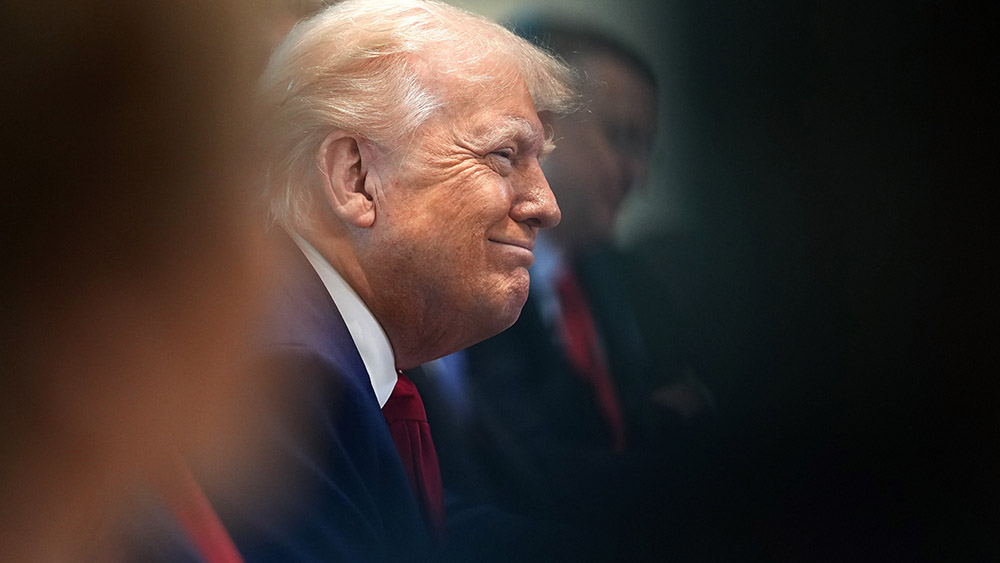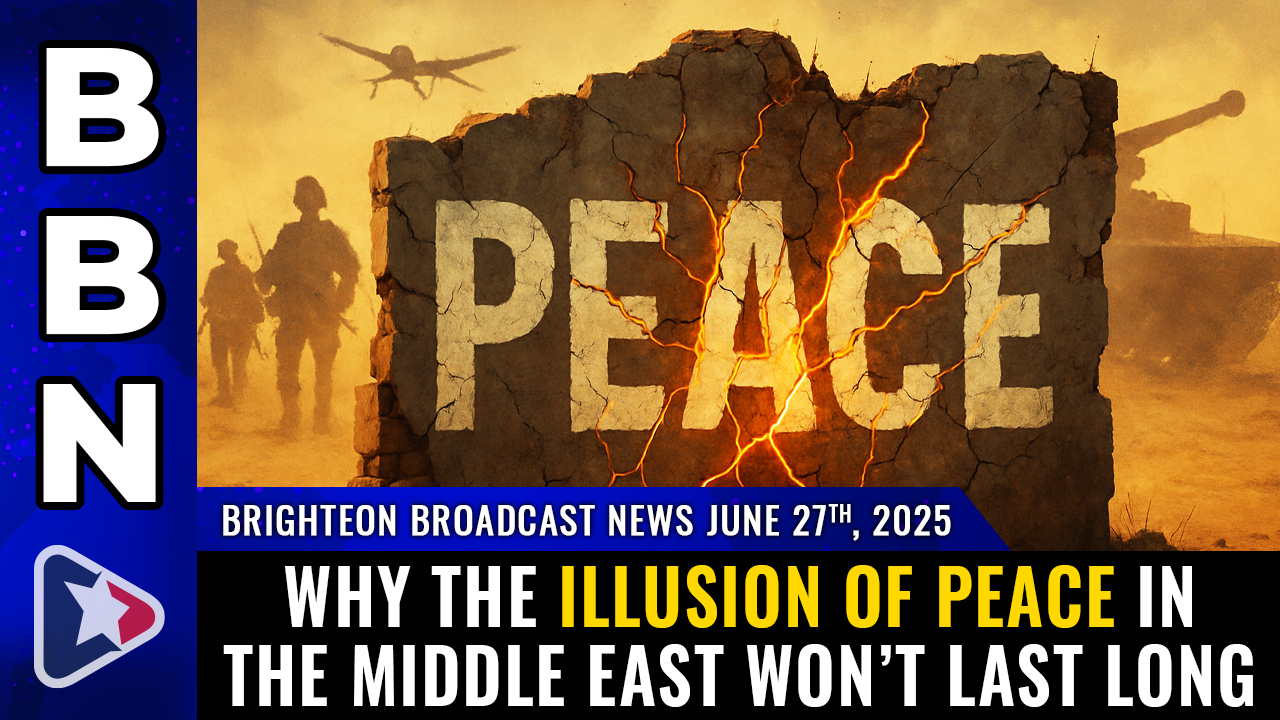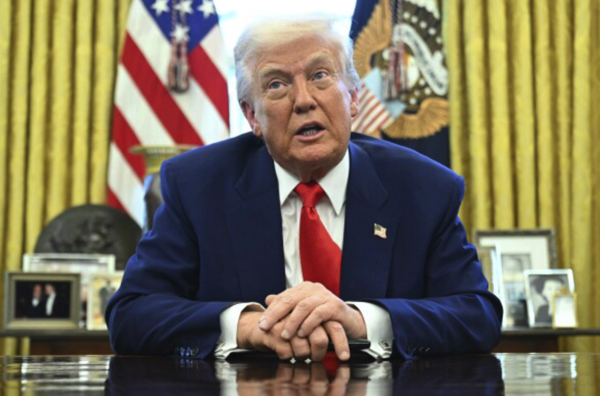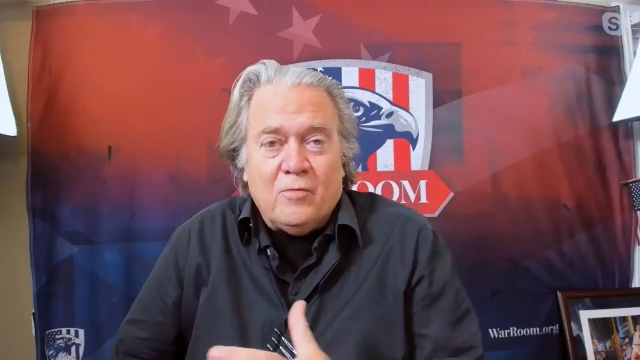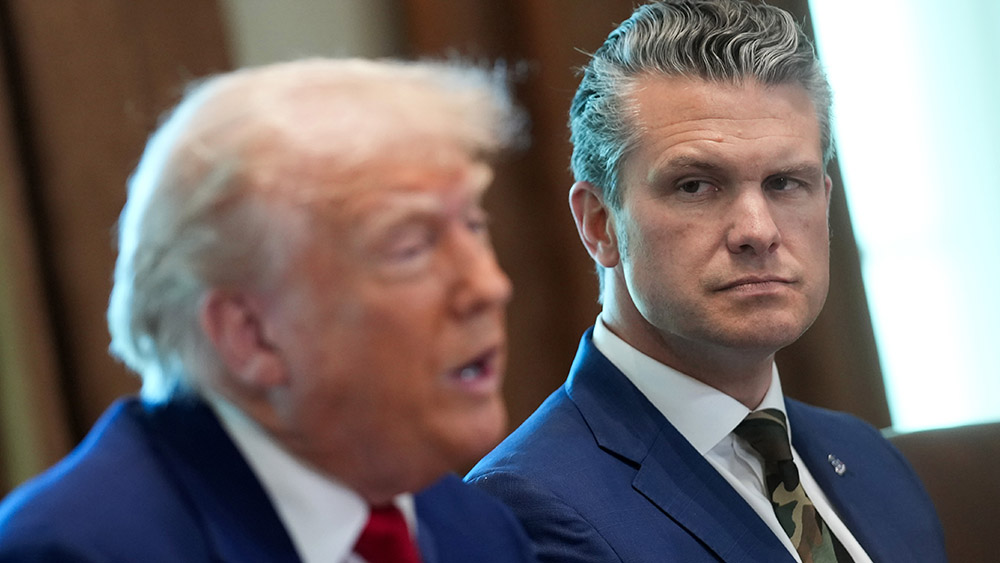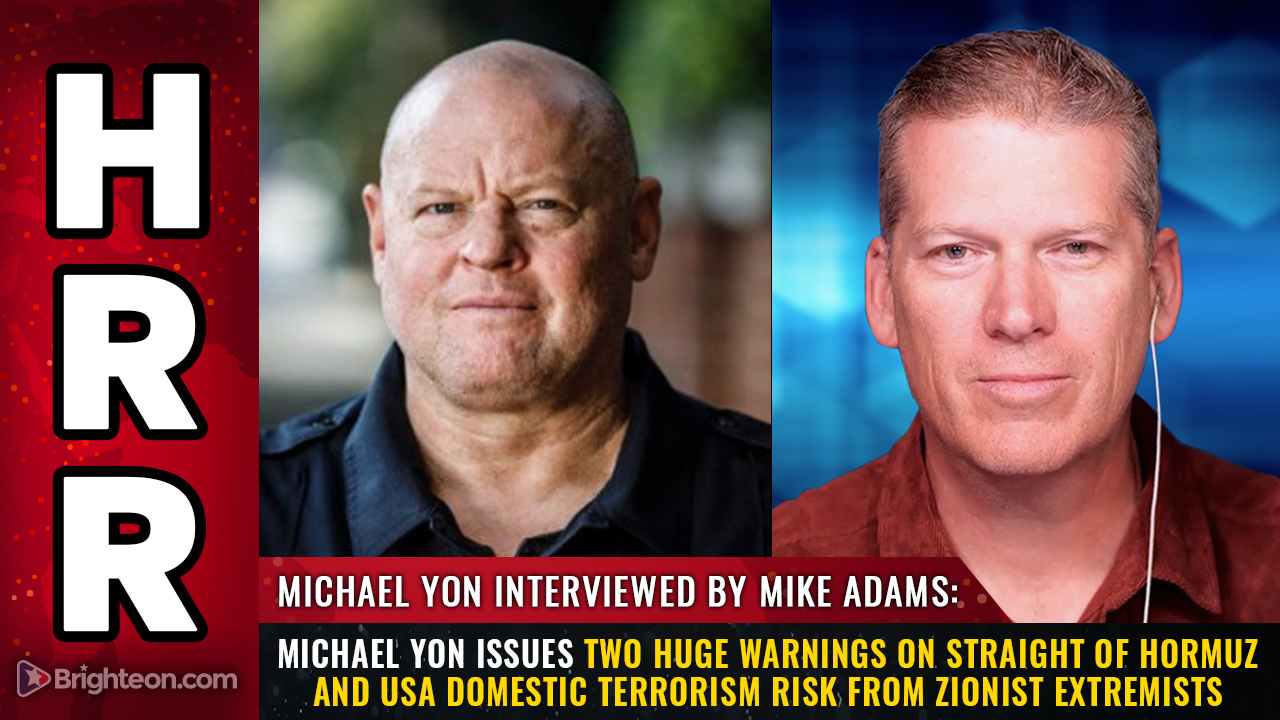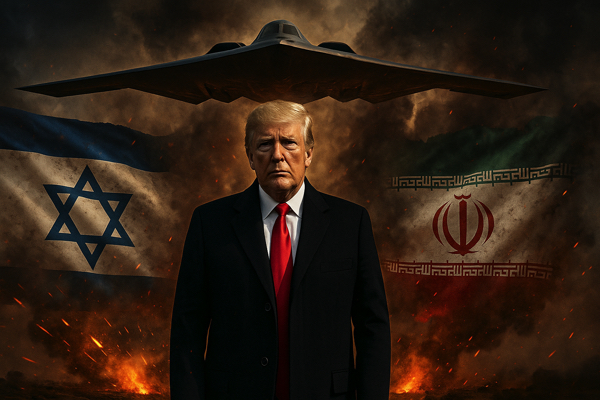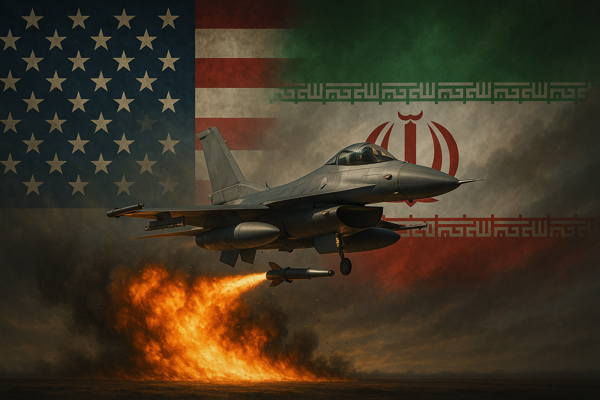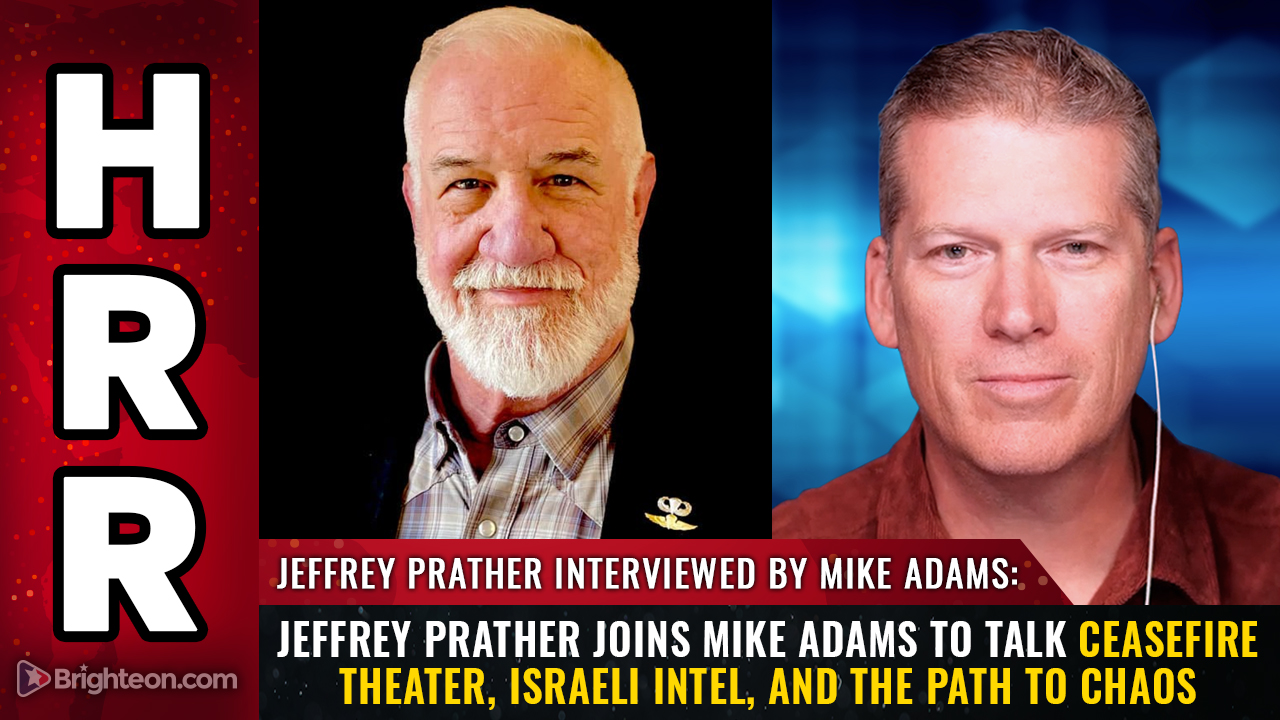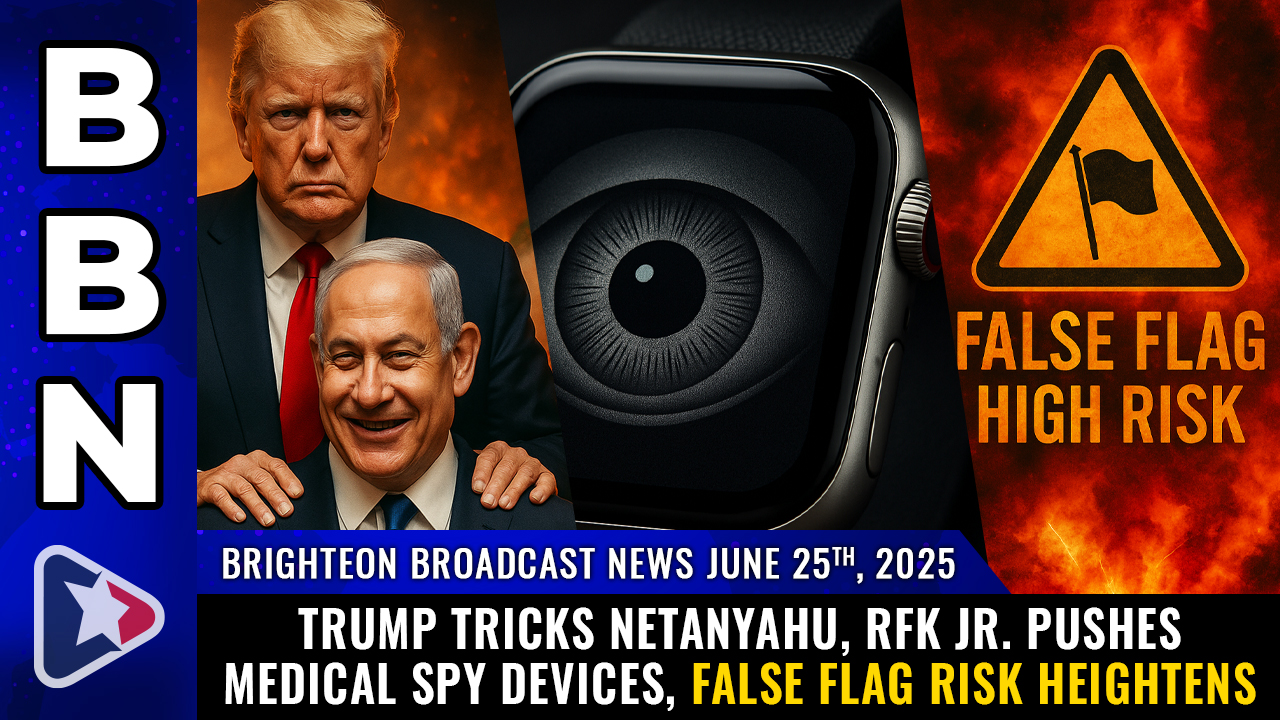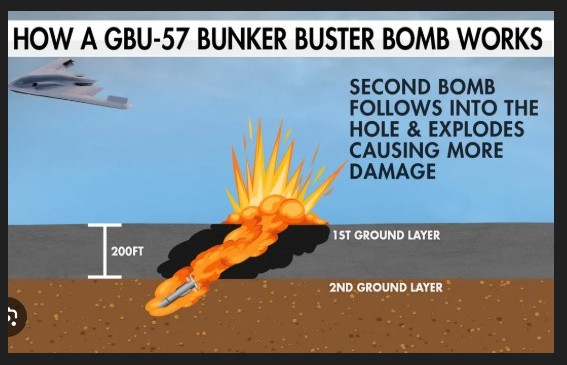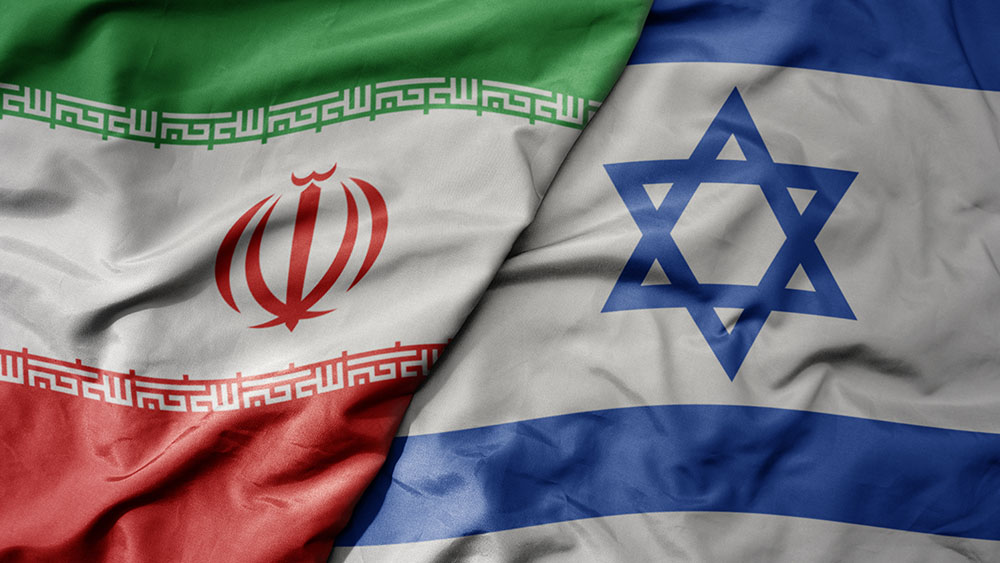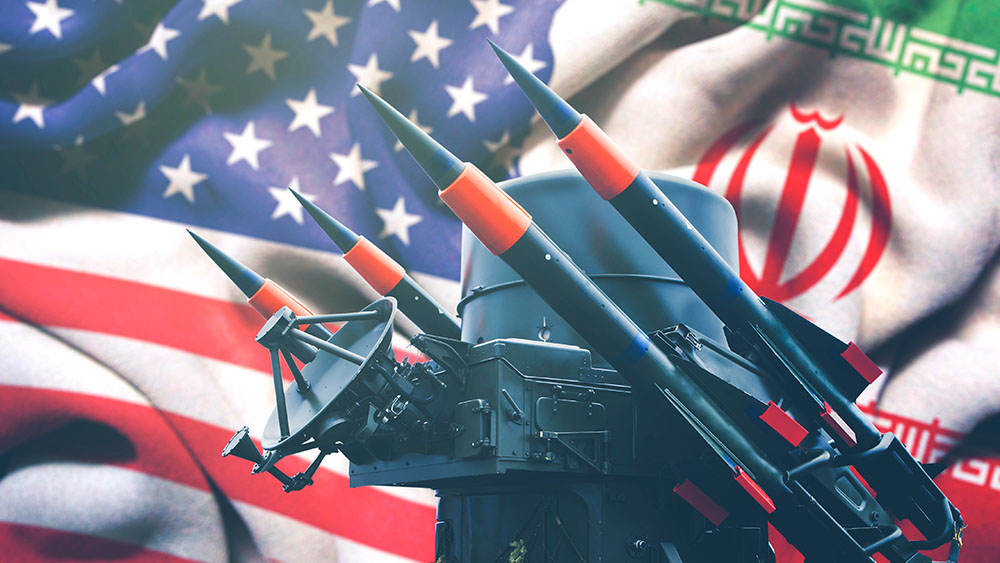Trump announces ceasefire between Israel and Iran, but skepticism and confusion abound
06/24/2025 / By Finn Heartley
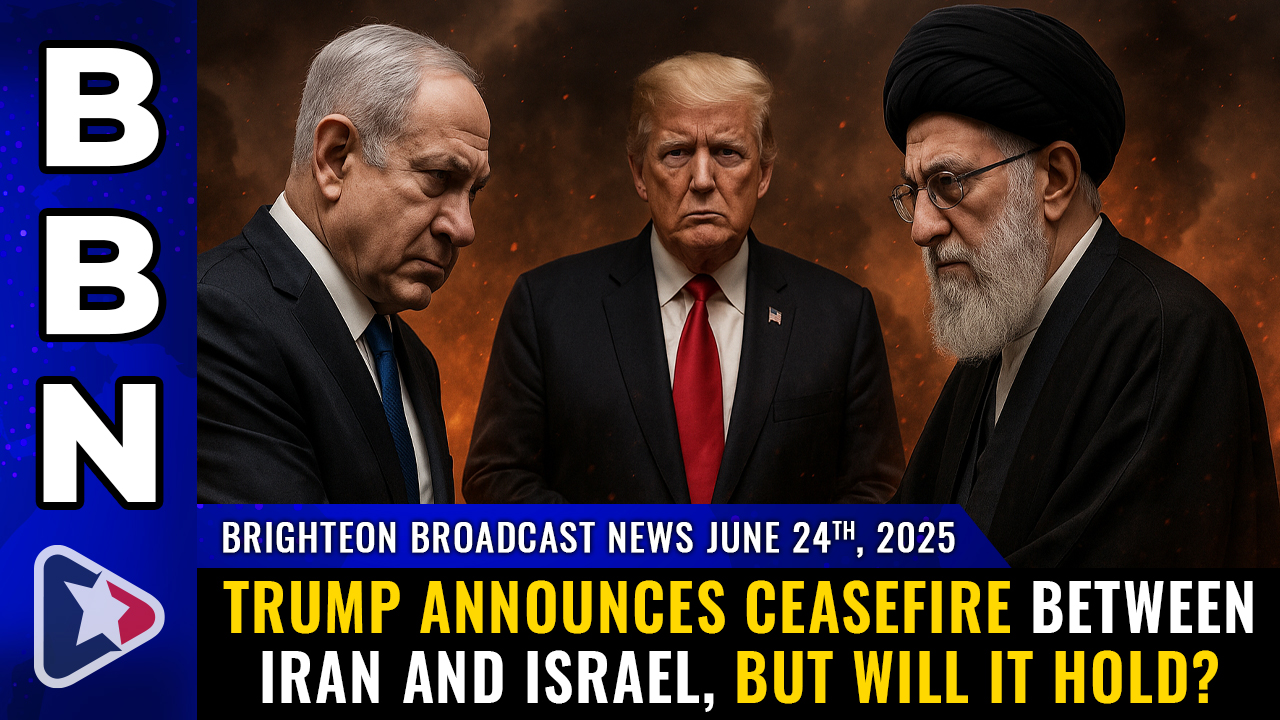
- Trump announces ceasefire: Former President Trump declared a ceasefire between Israel and Iran, ending the “12-Day War,” but Iranian officials denied any agreement, and missile strikes resumed shortly after.
- Conflicting narratives: Trump’s post claimed a diplomatic victory, while Iran’s state media refuted the ceasefire, and Israel’s government remained silent, fueling skepticism about the announcement’s legitimacy.
- Suspected tactical pause: Analysts suggest the ceasefire may be a strategic pause rather than peace, citing Trump’s earlier bombing of an empty nuclear facility as potential “war theater” to appease factions.
- Historical distrust: Past ceasefires have failed, with Israel violating agreements and Iran unlikely to concede amid demands to disarm its nuclear program and distrust over alleged assassinations.
- Unstable future: Renewed attacks and lack of consensus indicate the ceasefire is fragile, with experts predicting its collapse and oil markets bracing for volatility amid ongoing tensions.
In a dramatic late-night announcement, former U.S. President Donald Trump declared a ceasefire between Israel and Iran, proclaiming an end to what he termed the “12-Day War.” The statement, posted on Truth Social, claimed both nations had agreed to halt hostilities within hours, saluting a diplomatic victory. Yet within minutes of the announcement, reports emerged of renewed missile strikes from Iran toward Israel, while Iranian officials flatly denied any formal agreement.
The conflicting narratives have left analysts and global observers questioning whether this is a genuine de-escalation—or strategic theater designed to buy time.
A ceasefire without consensus?
Trump’s post, uncharacteristically typed in mixed case (rather than his trademark all-caps), framed the ceasefire as a fait accompli: “Israel and Iran have wound down their final missions … the war will be considered ended.” He praised both nations for “stamina, courage, and intelligence,” adding, “God bless Israel. God bless Iran.”
But Iranian state media swiftly contradicted the claim. CNN reported a senior Iranian official stating, “Iran has not received any ceasefire proposal and sees no reason for one.” Meanwhile, Israeli Prime Minister Benjamin Netanyahu’s cabinet was instructed to remain silent on the announcement — a move critics called suspicious.
Theater of war or diplomatic gambit?
Skeptics argue the ceasefire is a tactical pause, not peace. The podcast transcript reveals a broader context: Trump’s earlier bombing of Iran’s Ferdow nuclear facility — touted as a decisive blow — appears to have targeted empty structures, suggesting “war theater” to placate hardliners. “TFZ — Theater for Zionists,” the host quips, alleging Trump staged explosions to satisfy pro-Israel factions while secretly negotiating de-escalation with Tehran.
Yet history casts doubt on durability. Israel has violated past ceasefires (reportedly over 4,600 times in Lebanon alone, per Grok AI), and Iran — facing calls to disarm its nuclear program — has little incentive to concede. “Why would Iran trust a White House that used ‘negotiations’ as cover to assassinate its scientists?” the host asks, referencing Israel’s alleged killings of Iranian officials.
Nuclear brinkmanship looms
The transcript warns Iran may soon acquire nuclear weapons via allies like North Korea, mirroring Pyongyang’s deterrent strategy. “Libya tried appeasing the West and was destroyed. North Korea got nukes and was left alone,” notes the host. With Israel demanding Iran abandon uranium enrichment and Iran vowing never to comply, the ceasefire seems a fleeting truce.
What comes next?
As missile sirens blared in Tel Aviv hours after Trump’s post, the “Schrödinger’s ceasefire” (simultaneously alive and dead, per the host’s dark humor) appeared to collapse. Oil prices, which initially plummeted on the peace news, may rebound if strikes resume — a volatility traders are bracing for.
The bottom line: While Trump’s announcement offers a glimmer of hope, the lack of Iranian acknowledgment, Israel’s silence, and rapid resumption of attacks suggest this “12-Day War” is far from over. As one analyst in the transcript grimly predicts: “By Friday, this ceasefire will be gone.”
Watch the June 24 episode of “Brighteon Broadcast News” as Mike Adams, the Health Ranger, talks about Trump announcing ceasefire between Iran and Israel, but will it hold?
This video is from the Health Ranger Report channel on Brighteon.com.
More related stories:
Trump declares CEASEFIRE between Israel and Iran after 12 days of conflict
Trump demands Tehran’s “unconditional surrender” as Iran-Israel conflict escalates
Trump refuses to sign G7 statement on Israel-Iran conflict
Sources include:
Submit a correction >>
Tagged Under:
bbn, big government, Bombings, Brighteon Broadcast News, ceasefire, chaos, conspiracy, deception, Donald Trump, faked, HRR, interviews, Iran, Israel, Israel-Iran war, lies, Middle East, Mike Adams, military operations, national security, peace talks, propaganda, Qatar, Special Report, violence, White House, WWIII
This article may contain statements that reflect the opinion of the author
RECENT NEWS & ARTICLES
COPYRIGHT © 2017 WHITE HOUSE NEWS

